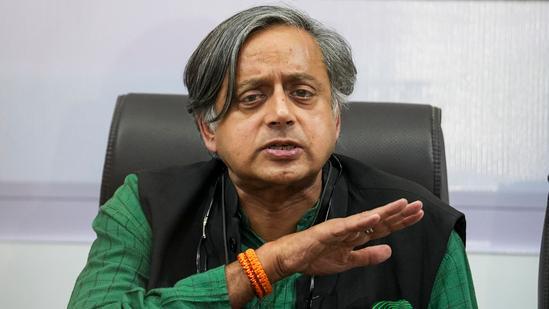
Govt doing right thing by calling all-party meet: Shashi Tharoor
In the midst of a national crisis, it is essential for the government and opposition parties to come together and work towards a common goal. This is exactly what the Centre has done by calling an all-party meeting to discuss the ongoing economic and political challenges facing the country. Congress leader Shashi Tharoor has lauded this move, saying that the Centre is doing the right thing by taking the opposition parties into confidence.
In a statement, Tharoor emphasized the need for unity in times of crisis. “In a national crisis, we must be united. Political differences stop when it comes to national security,” he said. This sentiment is echoed by many experts and politicians who believe that the current situation demands a collaborative approach to overcome the challenges facing the country.
The all-party meeting, which was attended by Congress chief Mallikarjun Kharge and Lok Sabha Leader of Opposition (LoP) Rahul Gandhi, among others, provided a platform for representatives from various parties to discuss and share their concerns and suggestions on the economic and political situation. This is a significant step forward in fostering cooperation and understanding between the government and the opposition.
Tharoor’s statement highlights the importance of putting aside political differences during times of crisis. In a country like India, where politics is often bitterly contested, it is easy to get caught up in partisan bickering and forget the bigger picture. However, it is precisely in these moments that leaders must rise above their differences and work towards a common goal.
The current economic and political situation in the country is indeed a crisis. The ongoing protests against the Citizenship Amendment Act (CAA), the economic slowdown, and the rising unemployment rates have created a sense of uncertainty and anxiety among citizens. It is essential for the government and opposition parties to come together to address these challenges and find solutions that benefit the country as a whole.
One of the key benefits of the all-party meeting is that it provides a platform for representatives from various parties to engage in constructive dialogue and share their expertise and perspectives on the issues facing the country. This can lead to a more comprehensive understanding of the problems and a more effective approach to addressing them.
In addition, the all-party meeting sends a strong signal to the public that the government is willing to listen to their concerns and work with them to find solutions. This is especially important in a democracy like India, where the government is accountable to the people. By involving the opposition parties in the decision-making process, the government can demonstrate its commitment to transparency and accountability.
Of course, not everyone is pleased with the all-party meeting. Some critics have argued that it is a ploy by the government to buy time and avoid taking concrete action on the issues facing the country. Others have questioned the credibility of the opposition parties, arguing that they are more interested in scoring political points than in finding solutions to the country’s problems.
However, it is essential to recognize that the all-party meeting is a step in the right direction. It may not be a panacea for all the country’s problems, but it is a crucial step towards creating a more collaborative and inclusive approach to governance.
In conclusion, Shashi Tharoor’s statement highlights the importance of unity and cooperation in times of crisis. The all-party meeting called by the Centre is a significant step forward in fostering cooperation and understanding between the government and the opposition parties. While there may be differences of opinion and perspectives, it is essential to put aside these differences and work towards a common goal.
As the country navigates the current economic and political challenges, it is crucial that the government and opposition parties continue to engage in constructive dialogue and cooperation. This will not only help to address the country’s problems but also strengthen the democratic fabric of the country.






